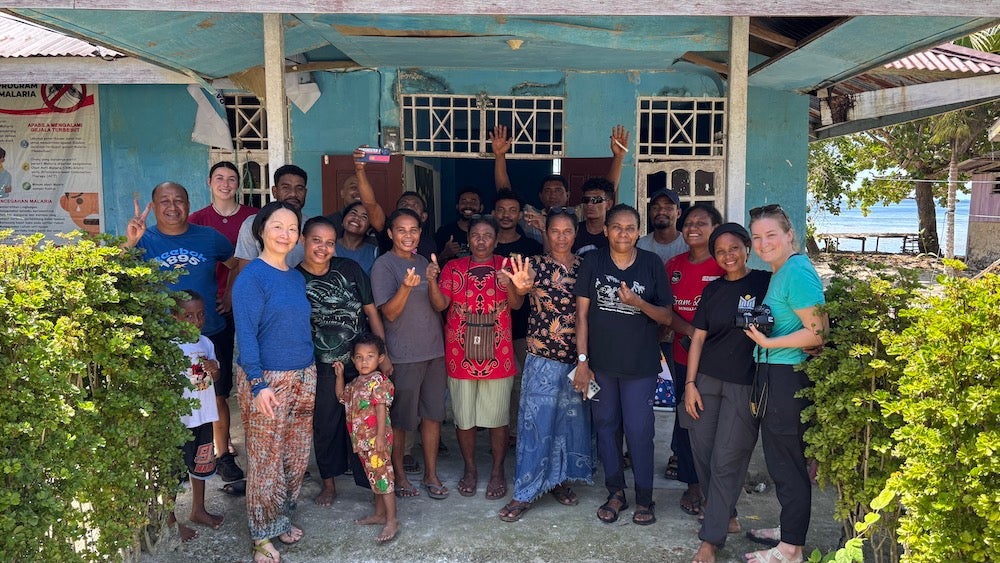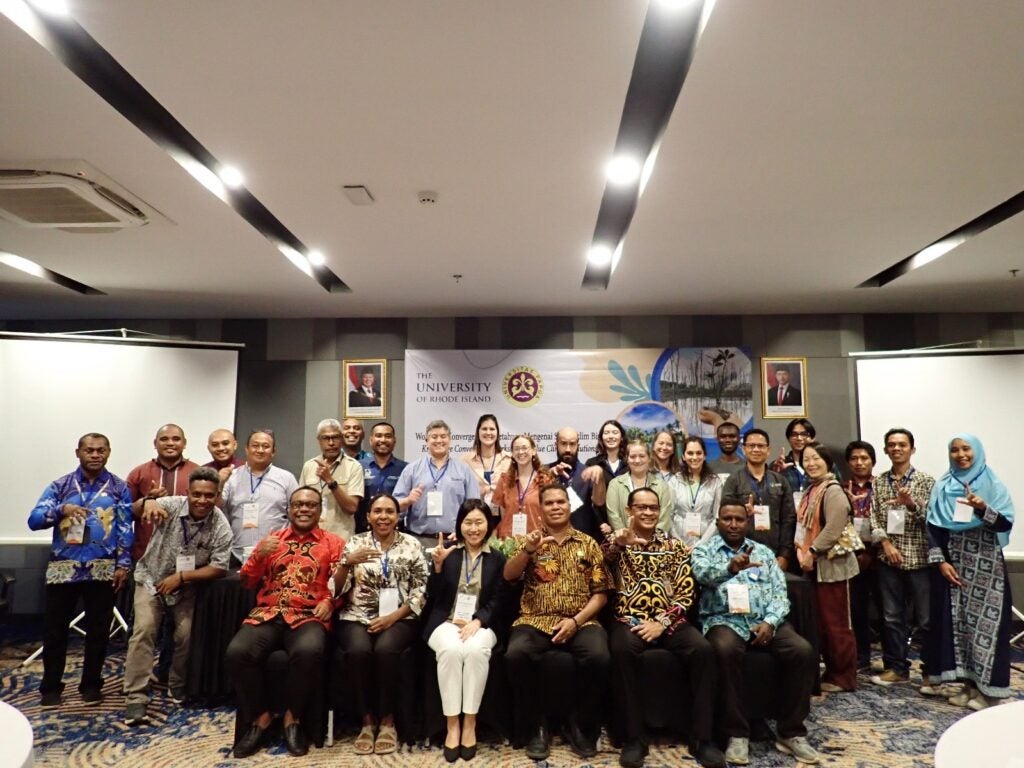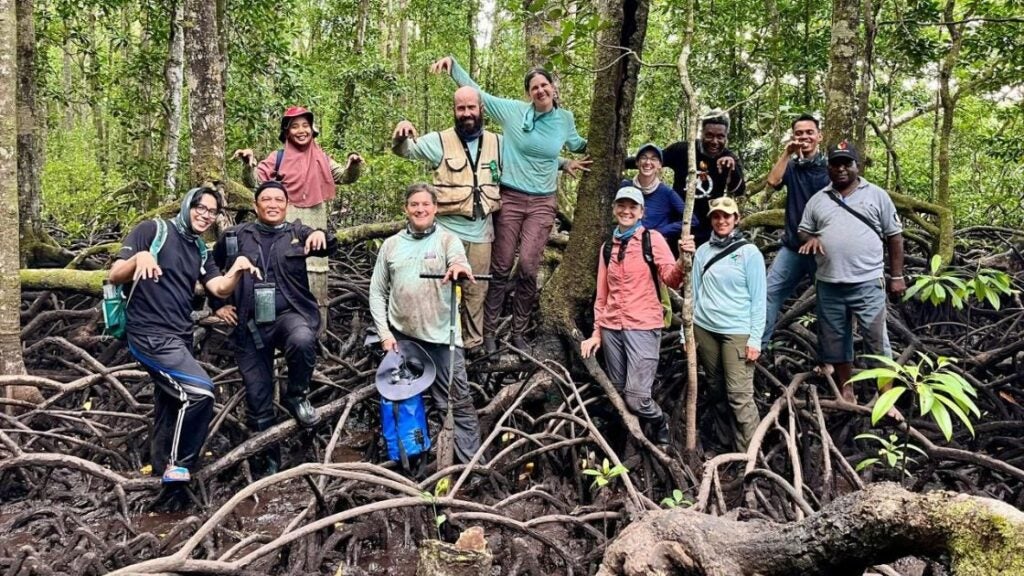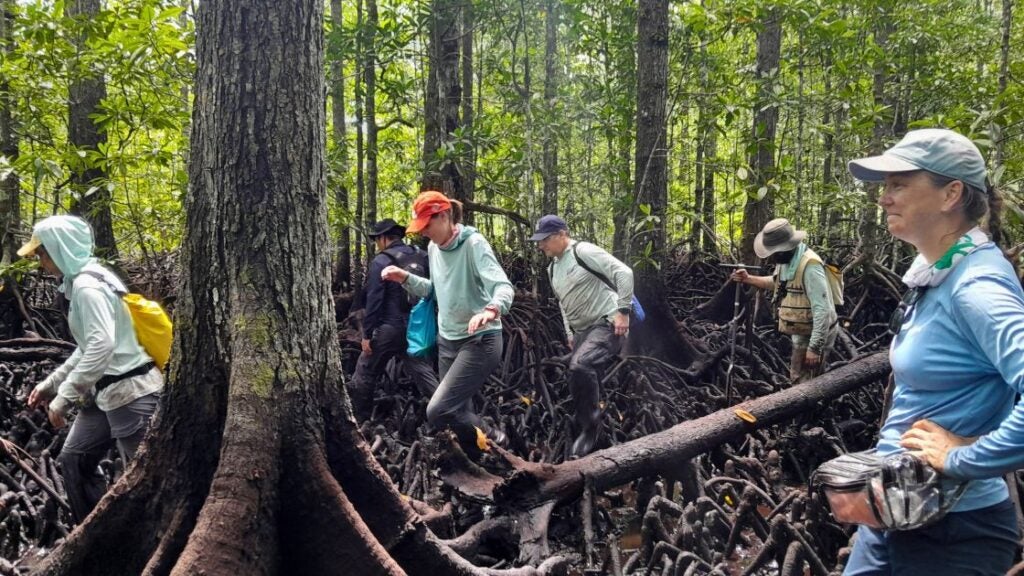Feb. 7, 2025
Little more than a year ago, an international team was established to prepare the Global Center for Blue Climate Solutions for research to support informed and equitable decisions for mangrove and seagrass conservation and restoration.
Funded by the National Science Foundation, this two-year project accelerates inclusive science and education with data collection and AI, creating collaborations with East Carolina University, University of the Virgin Islands, University of Papua, the National Research and Innovation Agency, and the Indonesia Climate Change Trust Fund.
In January, at the midpoint in the grant, Emi Uchida, University of Rhode Island professor of environmental and natural resource economics, led the United States team of faculty, early career researchers and graduate students to Southwest Papua, Indonesia, to organize a “Knowledge Convergence Workshop” and begin fieldwork in four coastal communities. At the workshop, discussions were designed to foster research collaboration and create a shared vision for the future global center. The more than 35 participants included social and natural scientists from universities in the U.S. and Indonesia, local community leaders, nonprofit organizations, as well as regional and national government agencies. University of Papua colleagues helped the U.S. team gain trust, resulting in the engagement of critical stakeholders in the community for Blue Climate Solutions.


According to one of the community leaders, “This is the first time that I sat on this side of the room, as a panelist, and those from the U.S. are on [the other] side, as the audience.”
“By the end of the three-day workshop, it was clear to all that the future Global Center should foster community-centered science that helps all stakeholders make better decisions,” Uchida says.
Field research took place during the second portion of the trip. Scientists from URI and the universities of East Carolina, Virgin Islands, and Papua visited four communities to understand local value and management of mangrove and seagrass ecosystems.
International partnership at work
“Our partnership with three universities from the United States will foster new ideas, encourage innovative thinking, and lead to more creative and effective solutions for addressing global climate issues,” says Selvi Tebay, principal investigator and professor at the University of Papua.
“Our project has assembled an excellent, international group of social and natural scientists who are poised to advance understanding and build awareness for sustaining mangrove and seagrass systems in Indonesia and elsewhere.”J.P. Walsh, principal investigator and professor at URI GSO
Social scientists recruited and trained youths from each community to collect elders’ knowledge of mangroves and seagrasses. Focus groups were organized to derive meaningful qualitative data on: the significance of mangroves and seagrasses, how each is used, how resources have changed over time, willingness to participate in future blue carbon projects, and spatial information using a community mapping approach.
Natural scientists used a wide range of technology and methodology for species identification and calculating distribution, evaluating carbon density, understanding microplastics contamination, and more. Drones surveyed from the air, sediment cores were extracted from the ground, sensors were sited to measure water salinity and tides, and sonar and boats were deployed to survey benthic habitat.



An international and interdisciplinary collaboration has broadened perspectives and promoted the blending of innovative tools and approaches to research, as well as a respectful and engaged integration of cross-cultural teams.
“Working across a transdisciplinary and international team helped me see how my research fits into a broader context and fueled research ideas I hope to pursue as I build my career, ” says researcher Victoria Fulfer, a postdoctoral fellow who earned her Ph.D. under GSO professor J.P. Walsh in 2024.
“These ecosystems aren’t just important for carbon storage and climate resilience. They are also integral parts of the local communities’ cultures, livelihoods and even medical practices.”Victoria Fulfer, postdoctoral fellow
Paired workshop and field experiences provided a lens through which the team can expand cultural and language immersion, real-time knowledge sharing in the field, adaptive work planning, and reflect for the future. Despite some challenges, the team noted the value of patience, a positive spirit, and the importance of laughter.
“The strong interpersonal relationships and mutual respect will be the foundation for future collaborations in the Global Center,” says Uchida. Going forward, the team hopes to share experiences, data, and lessons learned with communities, stakeholders, and academia, further expanding capacity and opportunities to establish the Global Center for Blue Climate Solutions.
NSF Award #: 2330518
